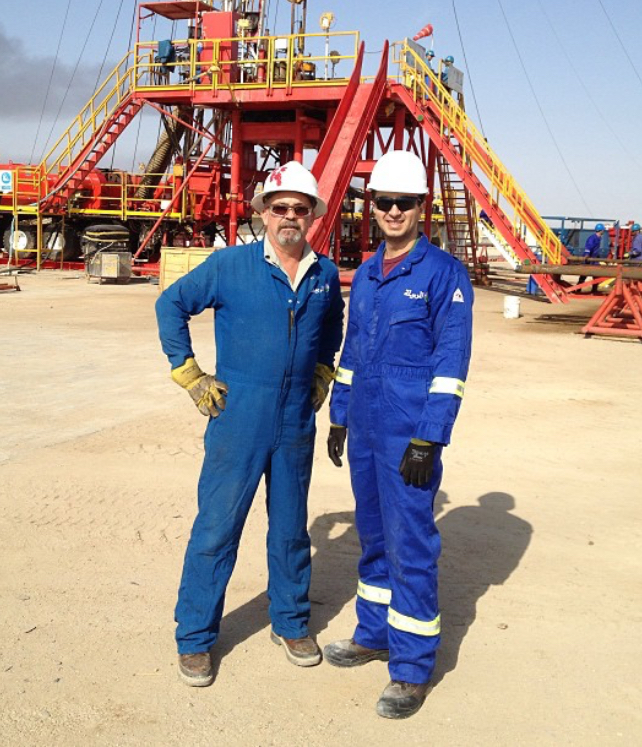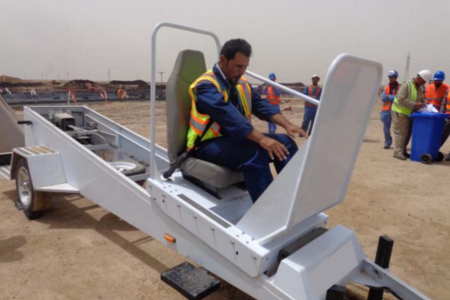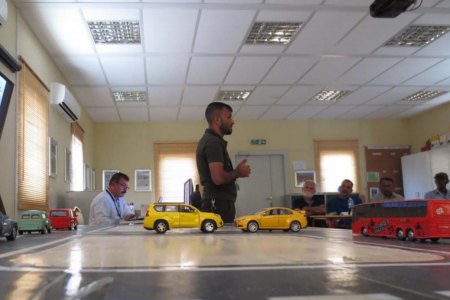Improving driving safety for the world’s third-largest oilfield.
Context
With the establishment of the Rumaila Operating Organisation (ROO), British energy supermajor BP assumed operatorship of the third largest oilfield in the world: Rumaila in Southern Iraq. In doing so, BP sought to instill operating rigor and discipline, with safety identified as the Joint Venture’s top priority.
In order to improve the field’s safety record, ROO identified driving safety as its major focus areas. In addition to improvements to physical road infrastructure, ROO leadership understood they would need to address deeply ingrained behaviors related to lax attitudes towards driving safety among Iraqi Nationals.
By employing a team of driving safety specialists and engaging with Iraqi staff early in the process, ROO was aiming to develop a set of tools to convince skeptical local drivers and passengers of the merits of safer practices.
Role
In early 2011 I was honored to be asked to join a new joint venture to rehabilitate the Rumaila oil field, with BP serving as lead contractor on the project. With a background in strategy, finance and new venture development I was initially responsible for developing and embedding the JV’s performance management processes and associated tools, providing line of sight to critical business information for decision making as well as establishing a baseline for key operating metrics which would serve to measure progress against contractually-defined targets.
Improving operating safety was a critical objective of the JV, as a significant ramp-up in drilling and major project activity necessitated new ways of working underpinned by a broader cultural shift among local nationals as it pertained to planning and executing work scopes.
As Director of Planning & Performance Management I was responsible for liaising between the Health & Safety Team, JV Leadership and Iraqi Managers to craft, understand and drive implementation of improved safety design and protocols to achieve world standard safety targets.

Process
To improve safety at the Rumaila oilfield, ROO identified several areas for improvement. Given the size of the oil field, physical condition of roads and local cultural attitudes around driving, vehicle safety quickly emerged as the area offering the greatest potential for improvement in overall safety.
In mapping the relevant stakeholders, a key constituency identified early in the process were individuals offering private vehicles for hire, a group which had surged following the establishment of a new field-based headquarters. Safety standards among this group were poor and the education levels of their drivers was minimal, requiring a significant education initiative to be administered in simple terms in the local language.
In conducting user research with Iraqi Nationals a common challenge in communicating the value of driving safety measures was a cultural attitude towards events in life being a direct result of “isn Allah” or God’s will. In simple terms, individuals felt strongly that measures such as wearing seat belts, obeying speed limits and avoiding having too many passengers in a vehicle were unlikely to result in any change in vehicle accidents or fatalities, as these events were related to God’s will, not their own behavior. As this viewpoint saturated across focus groups, the transportation safety design team considered several options to demonstrate the value of safety measures in such a way to encourage users to take personal responsibility for their safety.
In Action

The “Seat Belt Convincer” is a piece of equipment deployed to simulate the effectiveness of wearing a seat belt in a collision. Many skeptical users became convinced of the merits of wearing a seat belt after using it.

In-class demonstrations using miniature vehicles were used to illustrate different driving scenarios after it was observed that users were having difficulty grasping the inherent danger involved in various driving settings.
Outcomes
To leverage insights from user research indicating that a safety initiative championed primarily by expatriate leaders risked shallow adoption, Iraqi managers were enlisted to perform safety checks before their employees boarded vehicles, including a quick check of vehicle condition and passenger behaviours. As some local managers were reticent to engage in this type of safety checking, they were paired with expatriate colleagues who could provide a form of cover should locals question why they were being asked to adopt new safety measures.
In order to incentivize private vehicle operators to attend training and adhere to higher vehicle and driving safety standards, ROO created monthly driving safety awards for the safest drivers, including a lunchtime celebration with the JV General Manager. In addition, operators adhering to safety standards were provided with access to service bays to keep their vehicles in good working condition, which spurred increased adoption as many drivers appreciated the opportunity to beat the heat by maintaining their vehicles before their passengers arrived.
In addressing cultural attitudes towards driving safety, the ROO transportation team deployed a piece of equipment meant to simulate the function of a seat belt in restraining passengers during collisions, affectionately nicknamed the “seat belt convincer”. By placing the equipment in the centre of headquarters and encouraging Iraqi Nationals to try it for themselves, many skeptics came to recognize the value of “buckling up” and it became a source of interest, as many requested to have videos of themselves taken to show their families.
By deploying a multi-pronged approach, we were able to address the root causes around driving safety, which stemmed primarily from cultural attitudes and skepticism regarding the effectiveness of safety measures. Targeting specific user groups allowed ROO to convert skeptics into champions who would go on to cascade the message to their peers across the organization.
An important element of changing cultural attitudes among Iraqi Nationals was to recognize the importance of community, prompting the team to launch the Driving Safety Competition for children of ROO employees, thereby cascading safer behaviors to the next generation.



